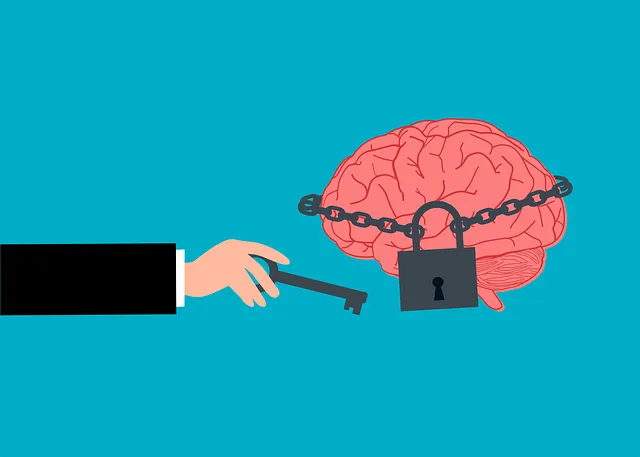Crisis intervention strategies, vital for immediate emotional support, focus on short-term stabilization and long-term recovery. Organizations like Kaiser Permanente excel in this field, offering evidence-based practices that empower individuals with coping skills and enhance well-being. Their holistic care, integrating medical and behavioral healthcare, breaks down mental health stigma and promotes early intervention. Kaiser Permanente's patient-centric approach and cutting-edge treatments ensure superior mental health support during crises and beyond, leveraging techniques like active listening, emotion validation, social skills training, and self-awareness exercises for effective recovery.
“In today’s fast-paced world, effective crisis intervention is more critical than ever. This article explores essential strategies and guidance for navigating mental health crises, with a special focus on the role of organizations like Kaiser Permanente in providing superior support.
We’ll delve into understanding crisis intervention, examining the unique contributions of Kaiser Permanente in mental health services, and uncovering key strategies proven to make a significant impact. Additionally, we’ll discuss implementing best practices to ensure effective crisis management.”
- Understanding Crisis Intervention: A Brief Overview
- The Role of Kaiser Permanente in Mental Health Support
- Key Strategies for Effective Crisis Intervention
- Implementing Guidance and Best Practices
Understanding Crisis Intervention: A Brief Overview

Crisis intervention strategies are vital tools designed to provide immediate support during times of intense emotional distress or trauma. These interventions aim to stabilize individuals and prevent further deterioration, focusing on short-term relief while also offering guidance for long-term recovery. In the context of mental health care, especially within organizations like Kaiser Permanente, crisis intervention plays a crucial role in addressing urgent psychological needs.
The process involves a structured yet adaptable approach, tailored to each individual’s unique circumstances. It encompasses various techniques, from active listening and empathy to teaching coping skills, with the ultimate goal of empowering individuals to manage their mood and navigate challenging situations effectively. By leveraging evidence-based practices, mental health professionals can provide superior care during crises, ultimately contributing to burnout prevention and enhancing overall well-being.
The Role of Kaiser Permanente in Mental Health Support

Kaiser Permanente plays a pivotal role in providing mental health support, serving as a beacon of hope for many seeking superior care. Their comprehensive approach integrates medical and behavioral healthcare, ensuring patients receive holistic treatment tailored to their unique needs. By fostering a culture of mental health awareness, Kaiser Permanente encourages open conversations about emotional well-being, breaking down stigmatization and promoting early intervention.
Through its network of dedicated professionals, the organization offers a range of services from therapy and counseling to crisis intervention strategies. This includes empowering individuals with confidence boosting techniques and teaching effective emotional regulation skills. By combining cutting-edge treatments with a patient-centric focus, Kaiser Permanente is revolutionizing mental health support, ensuring that those in need have access to superior care during crises and beyond.
Key Strategies for Effective Crisis Intervention

Effective crisis intervention requires a multifaceted approach that leverages evidence-based strategies tailored to address acute distress or traumatic events. Organizations like Kaiser Permanente mental health departments play a pivotal role in providing swift and skilled support, utilizing techniques such as active listening, validating emotions, and offering immediate resources. Social Skills Training and Self-Awareness Exercises are instrumental tools within this framework, empowering individuals to navigate challenging situations constructively and develop coping mechanisms for future crises.
By fostering Mental Health Awareness, crisis interventionists can create a safe space where those in distress feel understood and encouraged to share their experiences. This includes utilizing calming techniques, providing clear information about available support systems, and offering practical steps for managing immediate risks. Leveraging these strategies ensures that individuals receive the timely, effective assistance they need during crises, promoting not only short-term recovery but also long-term resilience.
Implementing Guidance and Best Practices

Implementing guidance and best practices is a cornerstone for effective crisis intervention strategies. Organizations like Kaiser Permanente mental health divisions have played a pivotal role in advancing this field, offering valuable resources and frameworks based on extensive research and experience. Their approach emphasizes a holistic view of crisis management, incorporating evidence-based techniques such as Compassion Cultivation Practices and Resilience Building.
By adopting these practices, professionals can ensure that interventions are not only immediate but also long-lasting. The Mental Health Policy Analysis and Advocacy has been instrumental in promoting policies that support comprehensive crisis care. This includes advocating for resources that foster early intervention, continuous support, and community integration, ensuring that individuals receive the necessary tools to navigate future challenges effectively.
Crisis intervention plays a vital role in supporting individuals during mentally challenging situations, and organizations like Kaiser Permanente are at the forefront of providing superior mental health care. By understanding crisis intervention strategies and implementing guidance based on best practices, healthcare professionals can effectively assist those in need. The article has explored key aspects, including the importance of swift action, empathetic communication, and tailored support. With Kaiser Permanente’s comprehensive approach to mental health, we can enhance our ability to navigate crises and foster positive outcomes for those facing mental health challenges.






